The Big Picture
- Collider's Steve Weintraub talks with The Sticky 's co-creators Brian Donovan and Ed Herro.
- Prime Video's The Sticky is a crime comedy inspired by the Great Canadian Maple Syrup Heist, featuring Emmy winner Margo Martindale in her first leading role.
- In this interview, Donovan and Herro discuss influences, inspiration, their intense research, and the five-season arc to explore character growth.
If you're looking for your next binge, look no further. Prime Video's new crime comedy series, The Sticky, is creators Brian Donovan and Ed Herro's fast-paced, fantastical take on a true event that became the Great Canadian Maple Syrup Heist. Taking inspiration from classics like Fargo, Breaking Bad, and even Silence of the Lambs, this duo takes their audience to a frosty small town in Montreal where a handful of locals are about to find themselves in a sticky situation.
In the show, three-time Emmy Award-winning Margo Martindale steps into her first-ever leading role as the tough Ruth Landry, a maple syrup farmer in the trenches with bureaucrats looking to take control of her land. With everything on the line, Ruth falls into a harebrained scheme with mobster Mike Byrne (Chris Diamantopoulos) and a sweet security guard, Remy Bouchard (Guillaume Cyr). Together, the trio plans to pilfer millions of dollars worth of syrup.
During this interview with Collider's Steve Weintraub, Donovan and Herro share their influences and discuss finding the perfect tonal balance for a wacky series inspired by true events. They talk about the thorough research done, working with guest star and executive producer Jamie Lee Curtis, Season 1 spoilers, and their long-term plan for the show post-Season 1's finale. For all of this and more, check out the full conversation in the video above or you can read the transcript below.
‘The Sticky’s Tone Takes Inspiration From ‘Fargo’ and ‘Breaking Bad’
“We steal from the best.”
COLLIDER: I watched all six episodes. I'm going to say congrats. I really hope people tune in so you can continue to tell the story of where the maple syrup will go.
ED HARRO: Thank you. We hope so, too. But you’ve got to watch December 6th on Prime Video, or we don't get a second season.
BRIAN DONOVAN: [Laughs] That's really what it comes down to.
I definitely felt the influence of Fargo on this series. Can you talk about that?
HERRO: That’s a compliment, thank you. We were influenced by Fargo, both the movie and the shows. Montreal has its own specific little world, just like Fargo does, and we were heavily reliant on that influence as well as a lot of other sources — Silence of the Lambs, we talked a lot about Breaking Bad in some ways. Obviously we want it to be our own thing, but we like to steal from the best.
DONOVAN: I remember the first time that I saw Fargo in the movie theater, and it was probably the first time that I was watching something, and I could feel the audience not knowing whether to laugh or whether to be terrified. I remember seeing it a couple of times, and the audience reactions were different every time. That's such a fun way for a story to be told, to be playing both things at the same time, and to be different for everyone who sees it. That's something we wanted to do a lot, is like, “Let's do comedy and drama at the same time, and let's always be riding the line of tone and slipping each way back and forth.” Because, first of all, that's what life is like, and it's more fun for the audience.
HERRO: Yeah. We come from a comedy background. We've been doing comedy together for years, so jokes are our first line of defense. But we purposefully said, “Let's not write jokes. Let's be serious and make the stakes as high as possible, and let's let the humor come from the characters being so serious and so dedicated to their tasks and hope that it works out.” And I hope it does.
1:36
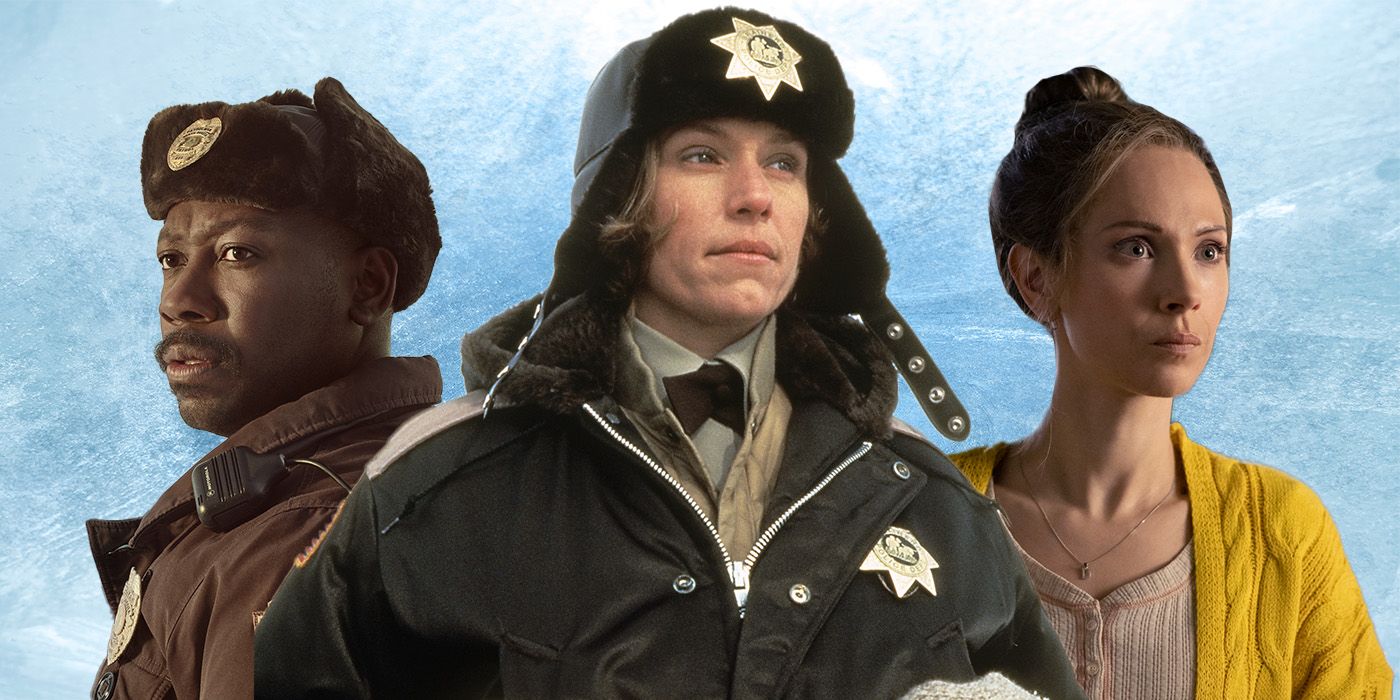
Related
Is 'Fargo' Based on a True Story?
A quirky film that promises to be based on a true story. But is it?
You've been working on this for a long time. At any point, were you like, “This is never happening. What are we doing?”
DONOVAN: Oh, sure.
HERRO: Yeah, last night. [Laughs] We wrote this original pilot almost six years ago. It was bought by one or two people before, and then the pandemic hit. It was dead until Jonathan Levine, our original director attached, was just in a conversation with somebody at Amazon Canada, and they asked him, “Do you know of any shows about Canada? Because we need one.” And John's like, “I happened to be attached to one.” And so it rose from the grave at the end of the pandemic. Is that about right?
DONAVAN: Yeah. Or just towards the end. I remember I was working out, and I got a phone call from our producer and I looked at the phone, and I was like, “Oh, I haven't heard from them for like a year and a half. What's going on? Maybe somebody's dead or something.” I picked up the phone, and Amazon wanted to do the show. Obviously, fantastic news, and that's just the way The Sticky has been. Every time we think it's done, it comes back. The fact that it's turned into this show that we're really proud of and really excited by, it doesn't get better than that.
‘The Sticky’ Is No ‘Oceans 11’ of Syrup
“We were learning how someone would do this crime as the characters were.”
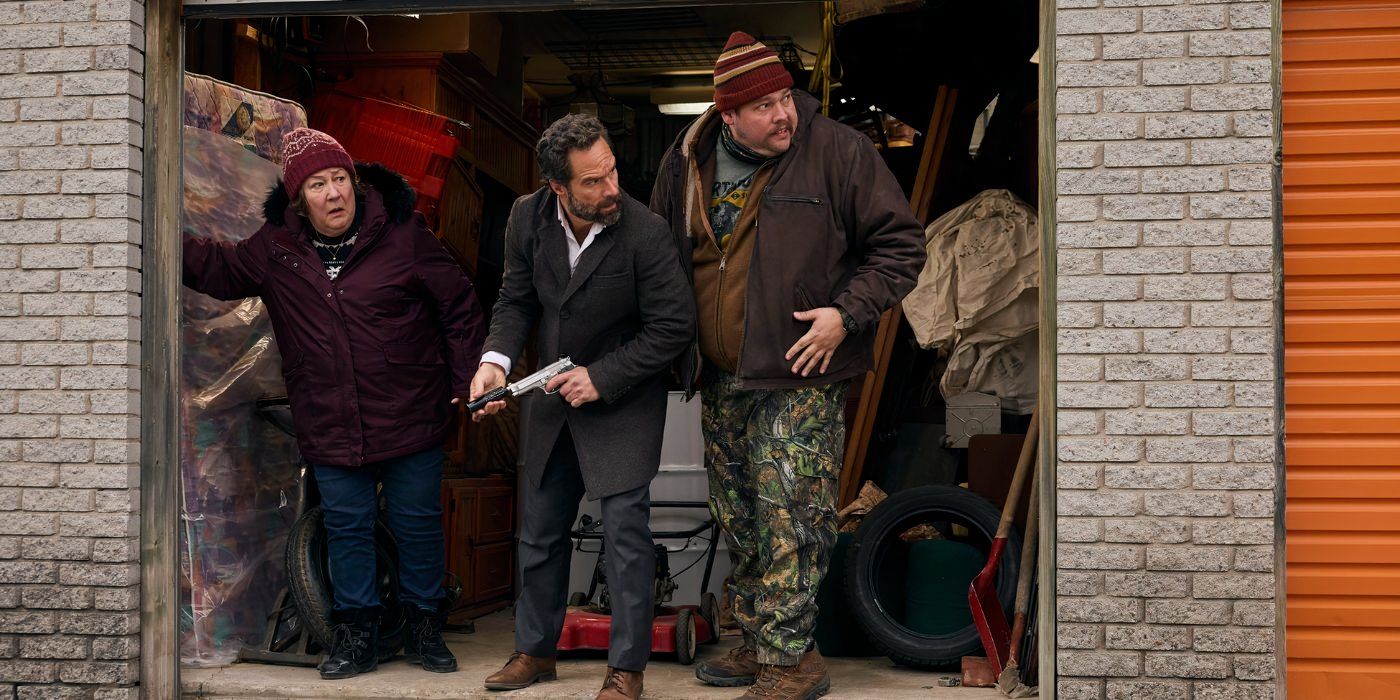 Image via Prime Video
Image via Prime Video Talk a little bit about designing the logistics of the robbery because there's a lot of specific information from the weight of the syrup… There's a lot there.
HERRO: We didn't know anything about maple syrup except that it goes on our pancakes before we started writing this. We read hundreds of pages about the real crime, even though it's only inspired by it, and we just took off on our own adventure. But we call it barrel math. We had to learn the weight of it, the density, also when it freezes or when it doesn't freeze. We learned all sorts of things about syrup to make sure that we could do it correctly because we knew that we were not going to be the most expert on syrup of everyone watching. There's going to be somebody out there who knows it. Plus, it lends more credibility to the characters in the story when they've thought about it.
When we originally pitched the show, we said, “It's a lot like if Brian and I tried to steal 500 cows. We could get some of them, for sure, but a lot of cows would die.” We probably wouldn't be friends anymore. I mean, it would be a disaster. And that's what these guys… They're not stupid by any means, and they're very smart. They're just not experienced in stealing $20 million worth of syrup, which no one is.
DONOVAN: The thing about most heist stories and heist movies is that, usually, the criminals are really good at it, like the guys in Ocean's 11 are great at doing a heist.
HERRO: And they look great doing it.
DONOVAN: What's fun about this story and how we really built these characters was they don't have any idea what they're doing. They're not criminals. We've got one mobster, but none of them knows how to pull off a $20 million robbery. It's pretty crazy. And so we approached it that way, like we were learning how someone would do this crime as the characters were, and we were just filling that into the story as we figured it out ourselves.
‘The Sticky’ Has a Five-Season Arc the Creators Are “Dying to Explore”
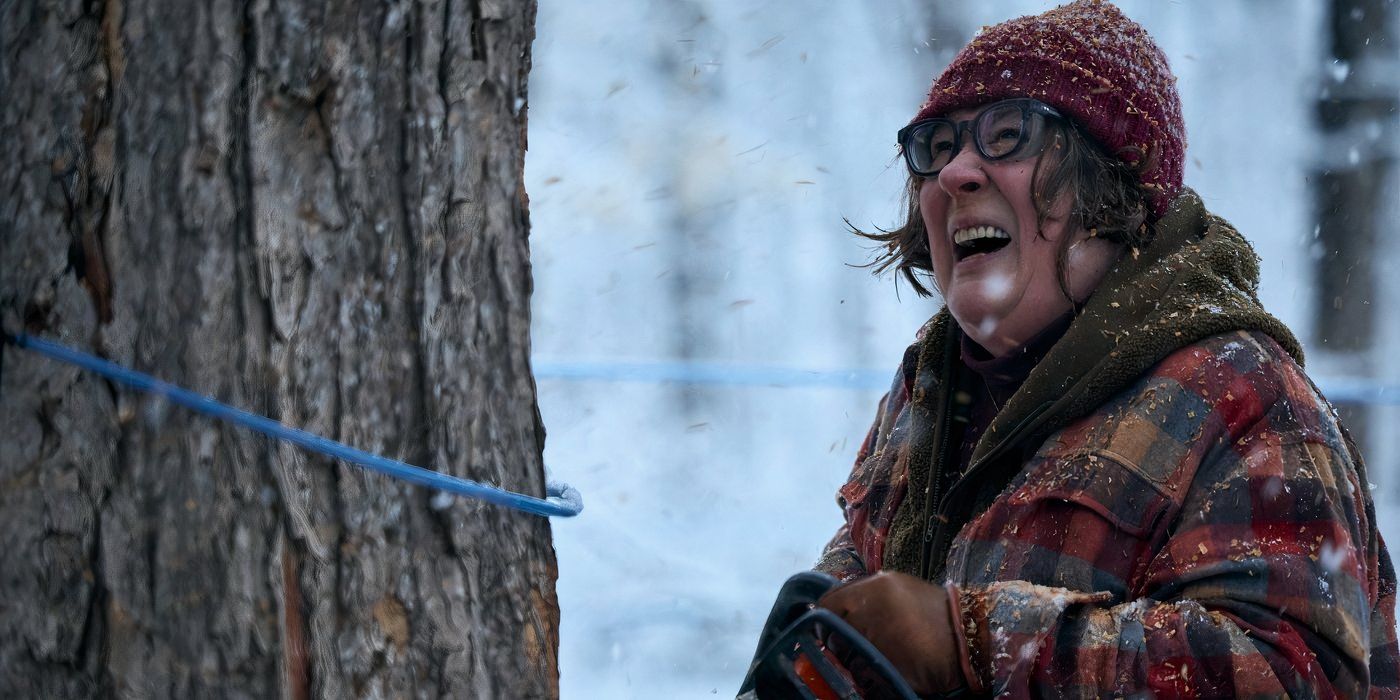 Image via Prime Video
Image via Prime Video In an ideal world, is this a three-season show — the robbery, trying to sell the syrup, and then what comes next? I'm curious what you thought about as the arc.
HERRO: You're very smart, but you underestimated us. We have five seasons planned out. The original crime was very boring — they slowly, quietly snuck syrup out, then they got caught eventually, and they went to jail. That is not good TV. So, we planned five seasons of these three characters growing, fighting, falling apart, and building themselves back up again over this one large heist as the centerpiece.
DONOVAN: A lot of these characters have known each other for decades, and that's something that we didn't get a chance to explore fully in the first season of the show — some of that backstory, how they got to where they are, and how that relationship will evolve with everybody involved going forward. So, there's so much there that we're dying to explore. There are seasons of these characters, and we want to see how crime takes them and changes them. Remy’s the sweetest guy on earth, and how does the crime affect him? These are all things that we're just dying to explore.
Getting into some spoilers, it does seem like you might be changing towards the end of the first season. Maybe he's losing a little bit. Do you envision future seasons, if you get to do them, as six episodes also?
HERRO: We're going to get some talented writers back in the room, and we're going to figure out what's the best thing for the story. I wouldn't be opposed to eight, but I do love the tightness of the six. No one's ever said, “I wish that series or that show were longer.” Just leave them wanting more. If we can get five seasons, we'll get our story out.
DONOVAN: I think there's a lot here, but what's so fun about The Sticky is how fast it is. You blink, and you're in the next episode, and then you're having fun, and you're in the next episode. It flies. And so, if we could do a handful more seasons like that, that are kind of like little movies on their own, it would be a blast for us and the audience.
I really enjoyed the runtimes and the breeziness.
[Editor's Note: The following contains spoilers for The Sticky Season 1]
Jamie Lee Curtis’ Season 1 Arc Was an “Added Bonus”
“We knew that we had Jamie for a set amount of time.”
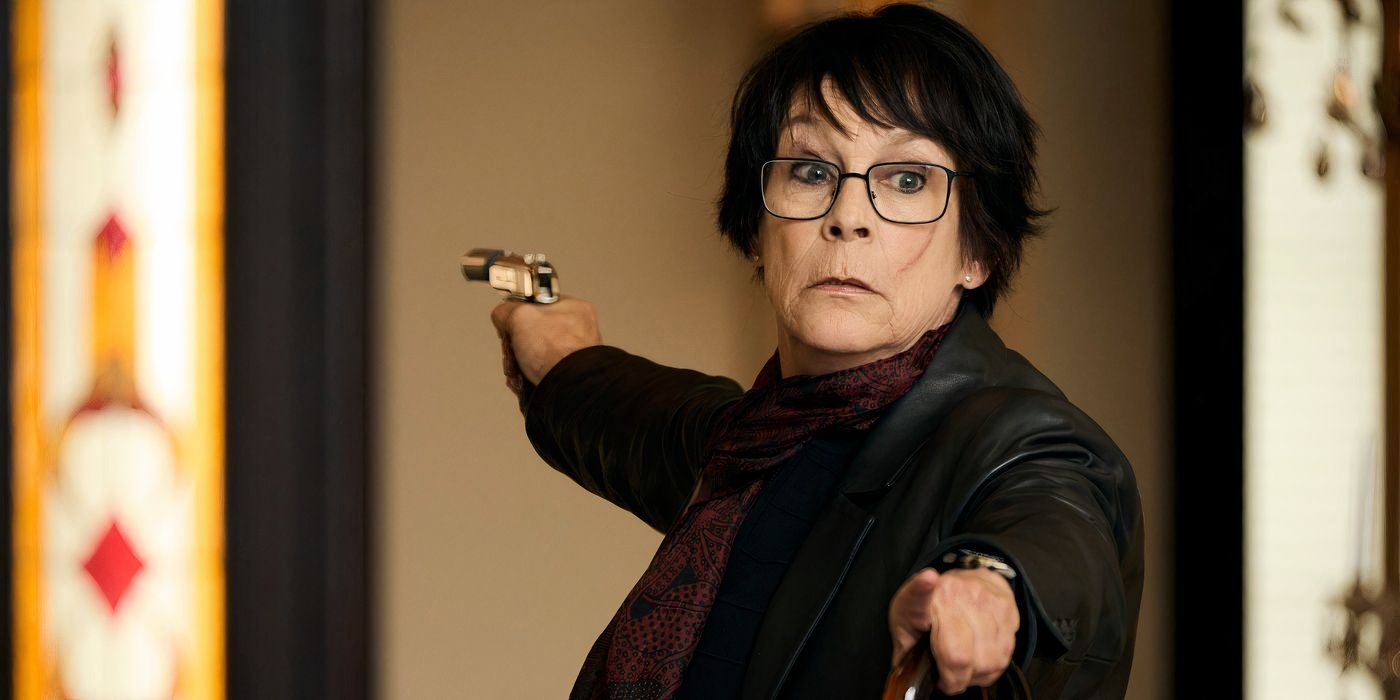 Image via Prime Video
Image via Prime Video I'm almost out of time, but I want to ask you some spoiler questions. How did you decide on where the first season was going to end, and was it always what people will see?
DONOVAN: We knew that we had Jamie [Lee Curtis] for a set amount of time. We knew we had her for a handful of days to shoot, and we knew we were going to need pretty much all of them for the one episode that happened, beginning to end. But we just kept thinking, “That's such an interesting character because she's known the rest of these people for so long. What's the most fun way to end this?” The first job we ever had was with Dan Fogelman, who made This Is Us, and he's the king of the cliffhanger; every season of his shows ends with the most intriguing thing possible. So I think in our heads, we were always thinking, “How do we build a Fogelman-style ending?”
HERRO: To your larger question, we always knew where we wanted the season to end for our three characters. I think the Jamie stuff was an added bonus throughout the process. But we also know where Seasons 2, 3, 4, and 5 end. We know the tentpoles. We want to have the fun of getting there.
The after-credits scene of the last episode, if you will, has Jamie in the hospital with Martin, and it does seem like she knows Martin. I'm just curious, has Martin not been as angelic as Margo's character has thought?
HERRO: You're going to have to watch Season 2. [Laughs]
DONOVAN: You're going to have to watch, Steve. She thinks he's the nicest guy she's ever met. It'd be interesting to see how that turns out.
HERRO: I can't wait to find out myself.
I think that's a nice, interesting little thing.
“Anyone Can Die” In ‘The Sticky’
“Even our three leads.”
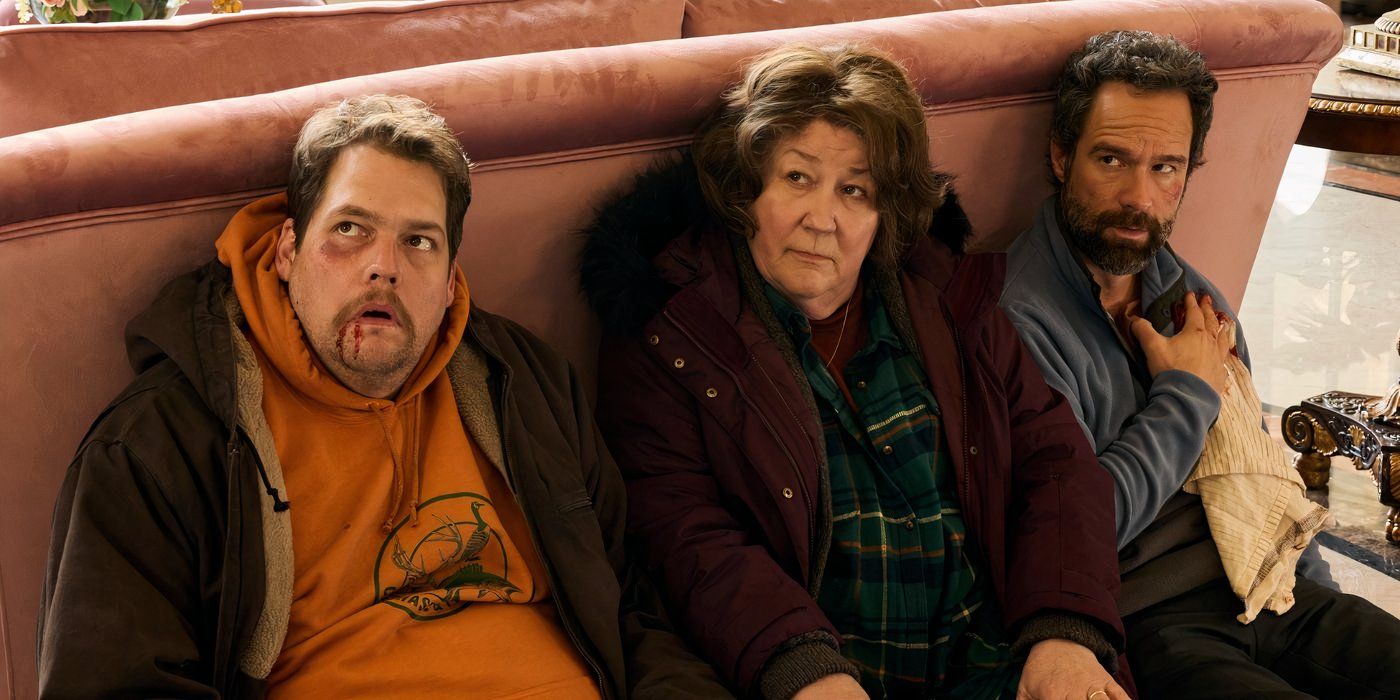 Image via Prime Video
Image via Prime Video Will Martin survive, or were those hand reactions because he's dying?
HERRO: Let me tell you this: we have put no one in the clear zone for the entire series. We started this thinking anyone can die, even our three leads. Anyone is on the table to die if it helps the story.
DONOVAN: The only person we know who's dead for sure is the head in maple syrup that you see at the beginning of the show. Other than that, everybody's game.
Are there any Easter eggs or things in the background that fans should look out for, or were you just happy to shoot in the schedule you had?
HERRO: The schedule is tight, but we did try and lay in a few little Easter eggs, if you will, that leads back to the regular heist. We're hoping people might come into this thinking it's fiction and then go and research and realize it really happened — not the way we told it, but it happened. So, in the plans, some taken, some not, that's a nod to the real crime, I suppose. Then there are plenty of X-ray facts, little numbers or names said throughout that are Easter eggs, or at least little bits of trivia.
DONOVAN: There's also a big part of the story from Boston. You'll see there are phone calls in the show from Boston and there are some characters that we see from Boston for glimmers, and they could have a very big role going forward in what happens with these characters. We've just sort of introduced them to get people excited for who they are and the actors who are playing them. We hope that we'll get to explore the bizarre, fascinating things when an even darker side of the world comes to Montreal.
The executives at Prime Video have obviously seen the whole series. Have they expressed to you, “We're pretty happy with how this turned out?” What's the feedback you've been given?
HERRO: Prime Video has been super supportive throughout the whole process, and now that it's complete, they have been showering us with praise. I imagine they're nice to everyone, but it seems like they're genuine in their praise for us.
DONOVAN: They're really enthusiastic. They talk very optimistically about doing more of the show. I think we're all waiting to see how the ratings are. It is 2024, and TV is a ratings business. So, I think everyone's really geared up for December 6th, and hoping a lot of people tune in and check it out. But the vibes are very positive, I will say.
I'm fascinated by the editing process. How did the show change in the editing room, if at all, in ways you didn't expect?
DONOVAN: It was a fascinating evolution. Because of COVID and because of the writers' strike, editing stopped. So, most shows you've got but maybe a couple of months to edit the show, and then you’ve got to go ahead and get it on the air. We ended up having larger chunks of time where either we could edit or we couldn't edit, but in our heads, we were thinking about the show, and we also had time to reflect. It's not often in TV that you can create something and then have three months off and then come back and look at it with fresh eyes.
So, it was edited a few different ways. There are a couple of scenes that are written into the pilot of the show that were favorite scenes of ours, scenes that we loved and scenes that readers loved and scenes that looked great on film, and they didn't end up making it into the pilot episode because in editing, you tell the story differently. You tell it definitely on the page, on set, and in the edit.
HERRO: And a scene from Episode 2 came into the pilot, actually, the way was written. When you're looking at the final piece, and you have all the pieces together, it really doesn't matter. Nothing matters except what's the best way to tell it, and so we were moving things around.
DONOVAN: When you have actors this good, a lot of times you need to explain things less than you think. So, you explain them on the page and then you get the actors performing it and the stuff that you take two pages to use words to say they can do in three seconds with a facial expression. So, it turns out things can be tighter than you ever thought they could be.
Completely. I've heard this from so many people.
Jason Blum was one of the producers. You mentioned Jonathan Levine. Jamie Lee Curtis was a producer. What was their feedback when they started seeing cuts? Were there any notes that they gave that helped shape the edit?
HERRO: Not to say they didn't help in many ways, I don't recall them getting that into detail in the editing. They were supportive throughout, of course, and helped a great deal. In my memory, they were much more hands-on helpful in getting us to that point. But I could be wrong.
DONOVAN: No, there's always a thing on a TV show when, before you've shot it, it's hard to know exactly what it is because it's not on film yet. So, the scripts can look good, it can all be a good plan, but you just don't know. I remember when we first got up to Montreal and started shooting, a daily started to come out — everybody was thrilled. Everything got really good, really fast, once people were able to finally see what was happening. Everyone was just excited and they just wanted to watch more and more of it.
HERRO: One of the tricks that I would recommend to everyone is getting– What was that thing that we've pushed for, that digital…?
DONOVAN: Heroin?
HERRO: [Laughs] It was heroin. On the day, the dailies were coming back at a heightened level. They weren't looking as rough as a lot of dailies go. It costs a little bit more money, I guess, but we were lucky enough to have someone suggest that, and so the dailies came in looking really, really cinematic immediately. In TV, all you want to do is keep people positive as early as possible, and so that helped a lot.
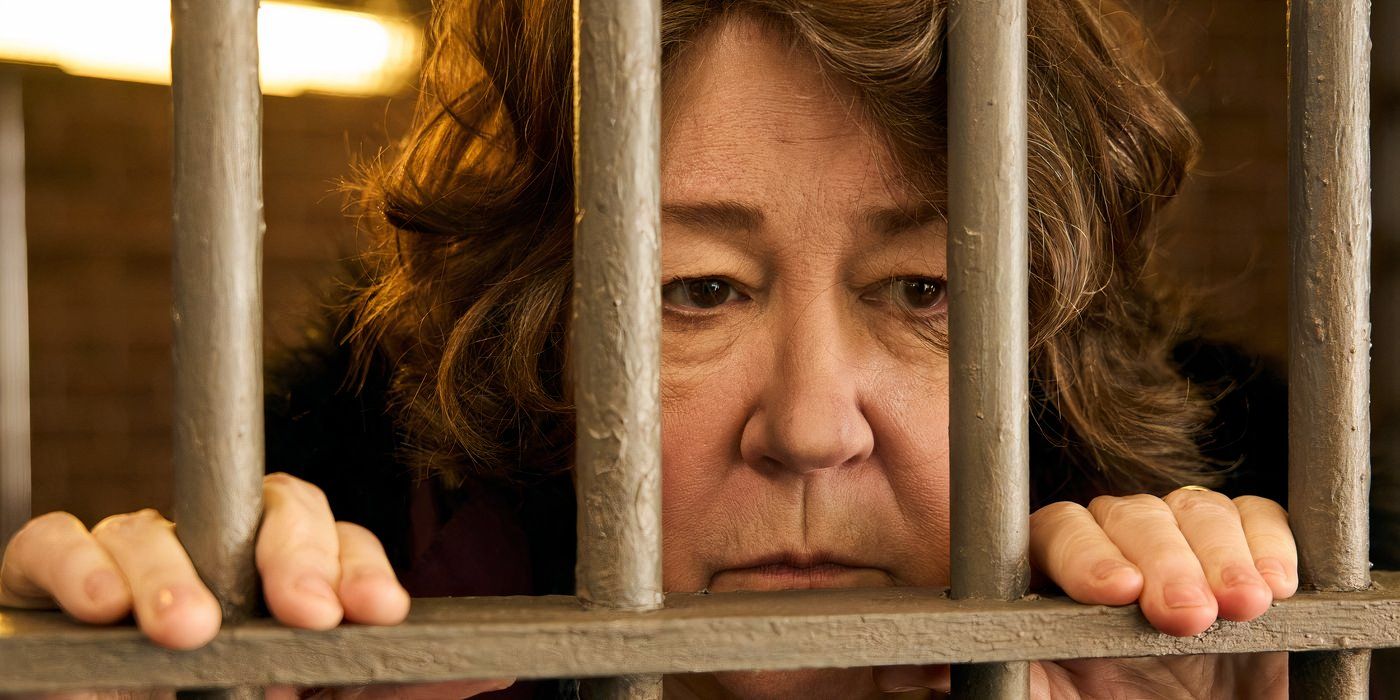 Image via Prime Video
Image via Prime Video It's six episodes, and most of them are, like, 25 minutes. Was there any discussion about doing three episodes at 50 minutes, or was it always designed for the six episodes?
HERRO: Honestly, we were considering going longer on all six and making it a little meatier — a little more breath in them, as we used to say. But again, all that matters is what's in the editing room, and it works at a shorter pace. So, we did lose some scenes we wanted and we just made it zippier than it was. I guess we originally conceived it just a little more drawn out.
DONOVAN: Yeah, a little longer, a little slower. There was more background for a lot of the characters. But what became clear was that the story was going to tell us how it was supposed to be told, and the story just felt right fast, quick, fun, surprising. That's just what it ended up having to be. So, that's the way the first season plays. Maybe that will change in future seasons. Maybe not.
HERRO: Yeah, I could see us doing future seasons a little bit longer. The beauty of streaming, of course, is one episode can be 25 and one can be 45, and there are no real rules anymore about that. I think that it serves TV and streaming very well, and I hope that we can take advantage of that if it's required.
You can watch The Sticky Season 1 on Prime Video now.
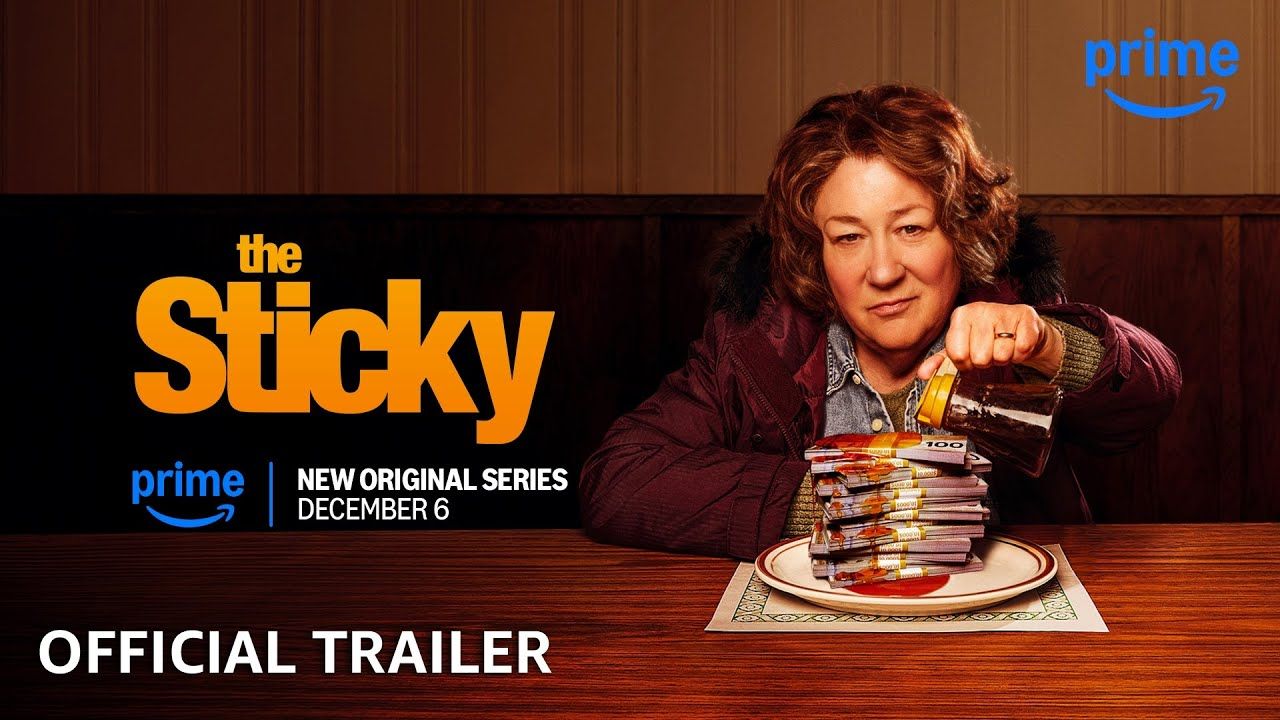
Your changes have been saved
The Sticky
Follows Ruth Clarke, a Canadian maple syrup farmer.
Seasons 1
Writers Adriana Maggs , Shannon Masters
Showrunner Brian Donovan , Ed Herro

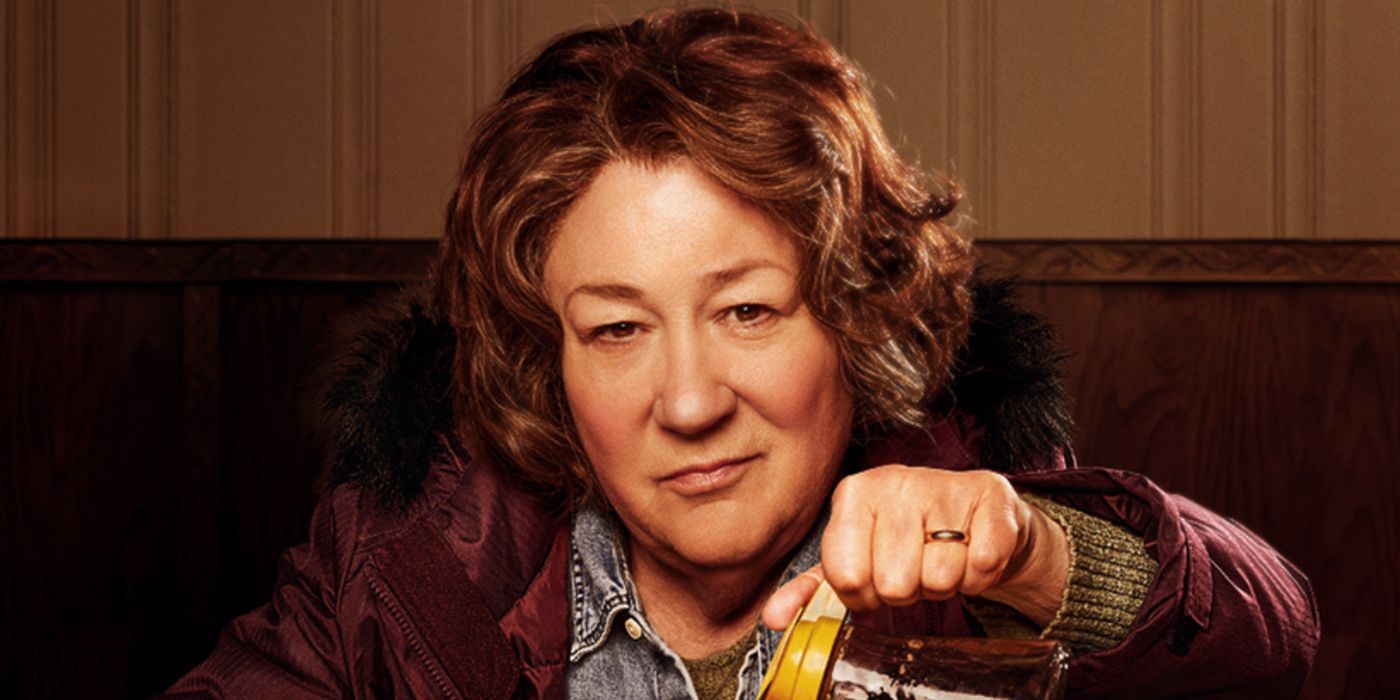
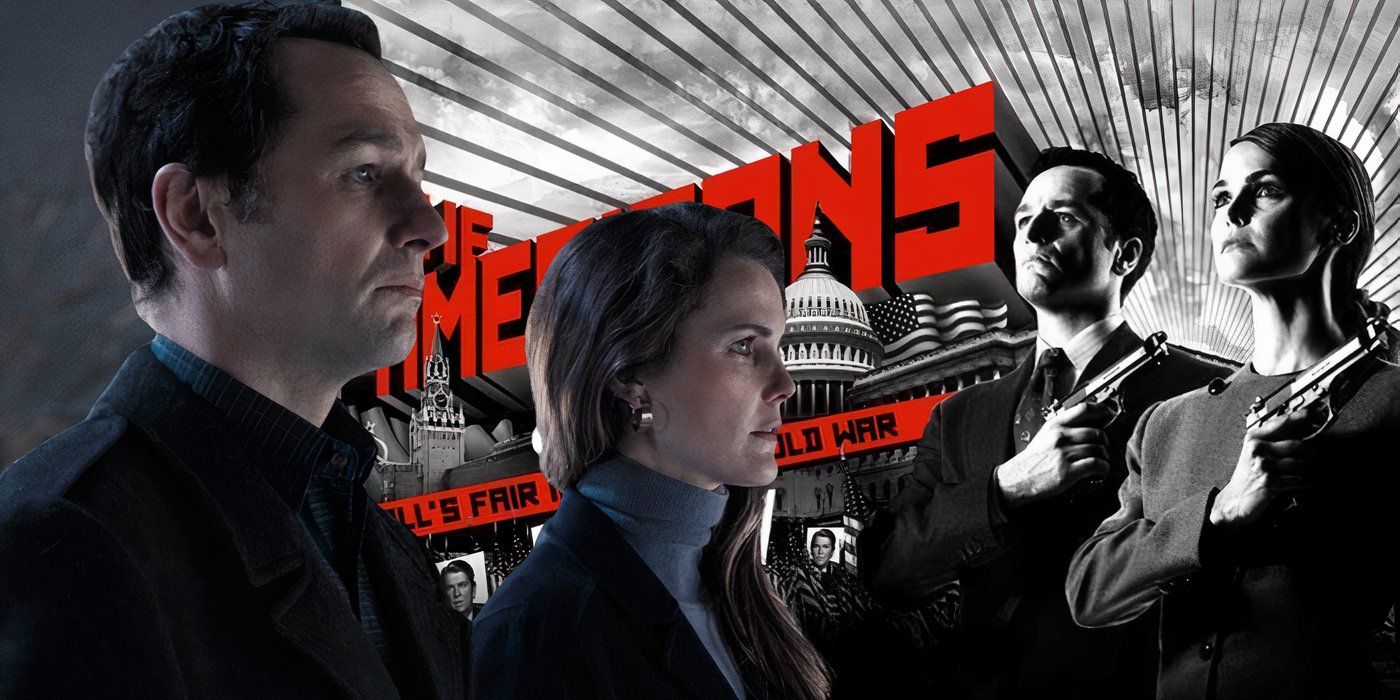
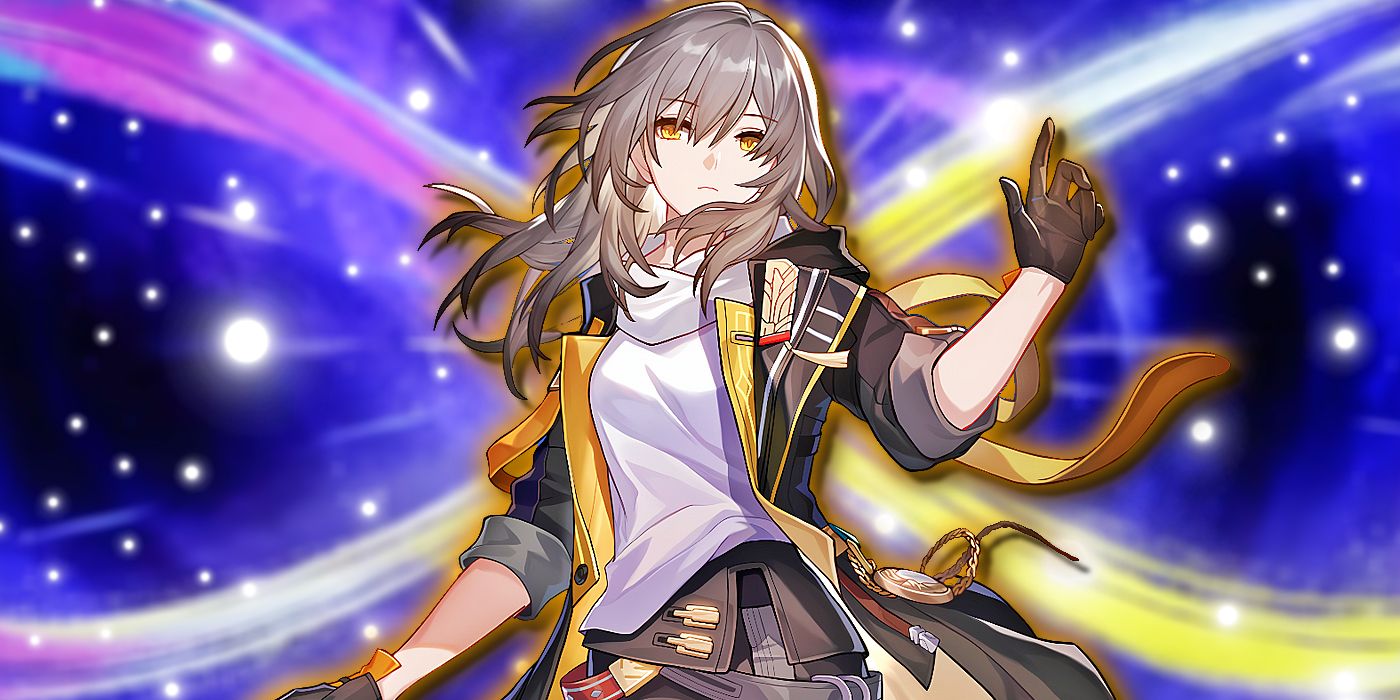
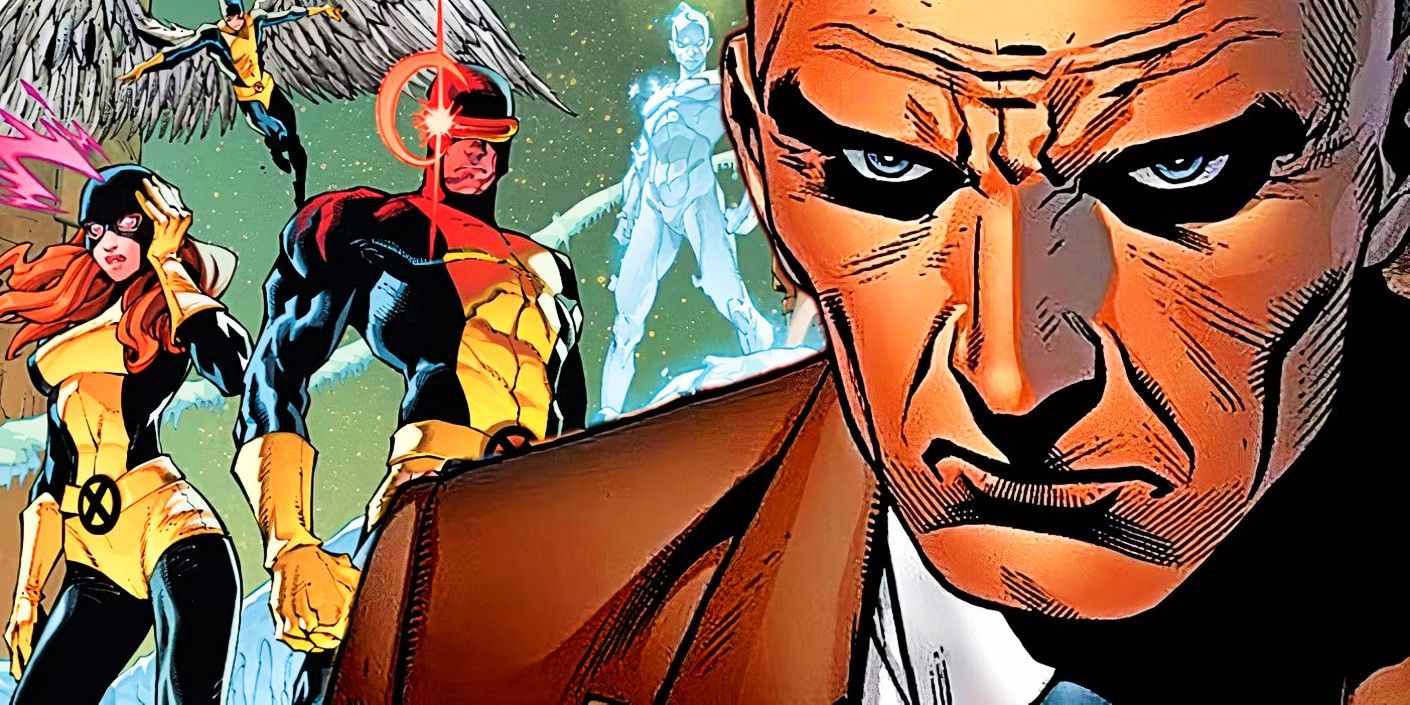





 English (US) ·
English (US) ·